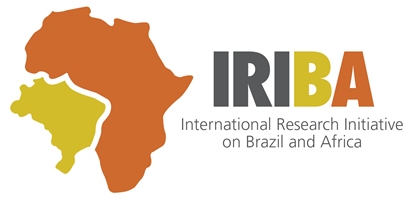The need for fiscal adjustment in Brazil
At the end of last year, IRIBA author José Roberto Afonso hosted a seminar looking at the institutional basis for Brazil’s macroeconomic stability. José summarises the discussions for us here (English translation below). O workshop Instituições para Estabilidade Macroeconômica n
Event: Institutions for macroeconomic stability in Brazil
Economic stability has been central to Brazil’s development progress over the last 20 years. Without it, successive governments could not have invested in the innovative social policies that have transformed the country. On December 19, we’ll be looking at this in much mor
Watch: The impact of innovative social policies in Brazil
Last month, IRIBA research director Armando Barrientos presented our main findings on the Brazilian development model at the LSE. Alongside him was the Brazilian Minister for Social Development, Tereza Campello. Favelas@LSE, who organised the event have put videos of all the presentat
Watch: The Brazilian development model debated
Last week, we teamed up with Johns Hopkins SAIS to debate the Brazilian development model and its potential implications for African countries. Watch the event:
Presidential elections in Brazil: a choice of development models
Mariana Mota Prado, author of the IRIBA research on the Brazilian approach to anti-corruption wrote the following comment on the Brazilian elections for the University of Toronto law blog. It’s re-posted here with permission. Last month, Brazil decided to re-elect its President,
Brazil: through the eyes of favela dwellers and government ministers
For the Brazilian minister for Social Development, Tereza Campello, ‘teaching a man to fish’ is only part of the story. You also need to show him the way to the river and if he’s too hungry to fish in the first place – just give him some of your fish! Campello’s impassioned take
The 5 key points to understanding Brazil’s development progress
We recently published a briefing giving a 10-point summary of our main findings from the first phase of the IRIBA project. This has been well-received, particularly by some of our academic colleagues. However, we wondered if the list could be boiled down further, especially for the bu
Bridging the urban-rural divide in Africa
The next edition of the African Economic Outlook will investigate how to bridge the urban-rural divide in African countries. With many African states struggling to translate impressive headline rates of economic growth into tangible improvements for the poorest people living in rural
November 11, 2014
Comments are off
Event: A Brazilian model of development?
We’re teaming up with the Johns Hopkins School of Advance International Studies (SAIS) in Washington to hold a debate on the Brazilian model of development and its implications for African countries. Brazil has emerged as a globally significant economic power in the last decade,
New UNU-Wider paper on the Brazilian development model
At the start of the IRIBA project a year ago, co-research directors Armando Barrientos and Ed Amann presented their initial thinking on the Brazilian model and its implications for African countries to a UNU-Wider conference on inclusive growth. With the first phase research no
© IRIBA 2014 | All rights reserved I Google+
Hosted by The Brooks World Poverty Institute
